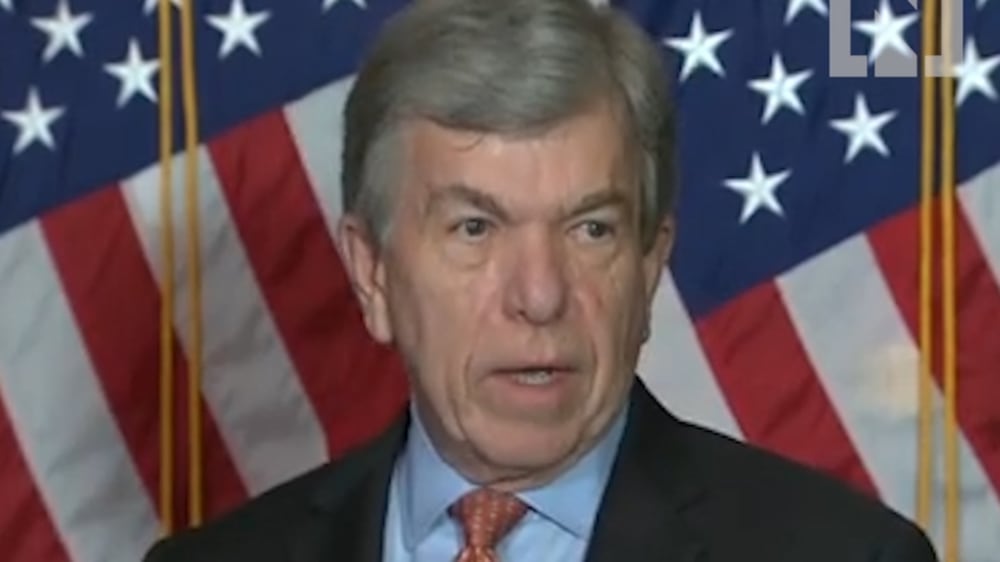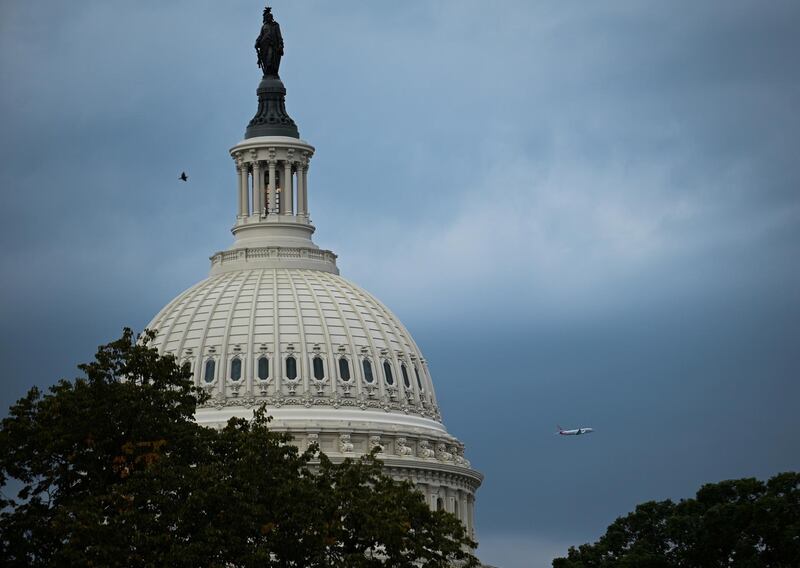Democrats in the US Senate are planning to force a vote to block President Donald Trump’s proposed $23 billion sale of 50 F-35 Lightning II aircraft and other defence systems to the UAE.
But if history is any indication, their bid to thwart the sale appears unlikely to succeed.
Roy Blunt, the senior senator from Missouri and chairman of the Senate Republican policy committee, this week urged Congress not to block the sale.
Republican senator supports F-35 sale as he hails US-UAE ties

“There'll be a Congressional vote on that issue," Mr Blunt said. "My personal view is it would be a big mistake not to move forward with that arms sale."
He said Israel had approved of the F-35 sale to proceed and joked that this might be the only issue on which the country's ruling coalition leaders, Prime Minister Benjamin Netanyahu and alternate prime minister Benny Gantz, agree.
The Missouri senator also highlighted the strengthening of US-UAE defence ties over the past two decades.
“For 20 years now, three different administrations, we have increasingly worked closely with the UAE on defence issues, on the ground together, in the air together, in at least six different extended deployments," Mr Blunt said.
"The UAE has been there."
Democrats have until December 11 to force a vote on their sale-blocking legislation, which is sponsored by Democratic senators Bob Menendez and Chris Murphy, and Republican Senator Rand Paul.
Mr Blunt expressed optimism that the legislation would fail.
“It will not successfully be stopped by the Congress, I don't believe, but it's a debate that we ought to be thinking about,” he said. “I certainly think we should continue with that arms sale.”
Mr Paul’s opposition to the sale means that Senate Democrats need to convince only two more Republicans to advance the legislation before it moves to the Democratic-held House of Representatives – as long as every Democrat votes in favour of it.
But even if Congress passes the legislation, Mr Trump is likely to veto it, and Democrats are highly unlikely to gather the two-thirds majority needed to override his veto.
It was a similar situation last year when Congress failed to block an $8bn emergency arms sale to the UAE and Saudi Arabia after Mr Trump vetoed the legislation.
Three senior US officials, David Schenker, Clarke Cooper and Michael Cutrone, briefed Congress this week in a closed session on the sale.
But after the meeting, Mr Murphy led the objection to the deal and warned against rushing the issue in a lame duck session of Congress.
9/ There is a level of arms transfer to UAE that could make sense. We SHOULD be a strategic ally of the Emirates. But rushing this sale through in a lame duck Administration is very dangerous. There are giant unanswered questions, and that's why Congress should stop it.
— Chris Murphy (@ChrisMurphyCT) December 2, 2020
On Thursday, the UAE ambassador to the US, Yousef Al Otaiba, rebutted Mr Murphy’s objections.
“For more than 20 years, the US has entrusted the UAE to purchase and operate F-16s, Patriots, Thaad and many other of the most advanced US-supplied defence systems,” he said, adding that the defence sale would support thousands of jobs.
Mr Al Otaiba said the sale was critical to the UAE’s protection and deepening ties with Washington.
“The US is the UAE’s security partner of choice," he said. "We want US defence equipment, training and co-ordination.
"In the world’s most dangerous neighbourhood, it is critical for our protection and for our shared interests and values with the US.”







